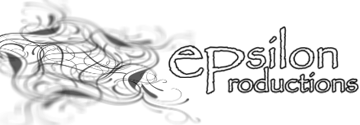Emily Appleton Holley is a London based composer who has written music for various film and television projects. Here she talks about her work on Epsilon Productions forthcoming Crystal Springs.
Having just returned from our first full run through of Crystal Springs, I find myself left with only a few final tweaks and notes to manoeuvre into place. With opening night rapidly nearing I sit down, rather enthusiastically, to pen a few words to reflect on my process and time spent with the play.
Don’t get me wrong, this project has been no walk in the park. As so often happens, the creative journey has been a scenic one. Setting out with boundless energy, encountering ideas left, right and centre, only to suddenly find yourself meandering and stumbling. You can feel as if you’re stuck in front of a wall (THE WALL), going in circles. Until, as if by magic(!), the ideas click into place. And gradually you end up with something that might just work – and finally, eventually, that you are actually quite pleased with.
It doesn’t seem long ago now that Jemma (Gross, the show’s director) and I met over a piece of polenta cake to discuss initial ideas for the score. With my musical roots firmly planted in writing for screen, theatre is still something fairly new and Crystal Springs offered up challenges that got me rather excited.
The play centres around the lives of six women, highlighting the repercussions following a tragedy and exploring its effects on them and their relationships. Before I (figuratively) put pen to paper, I had to ask myself what kind of score would support these poignant and beautifully acted moments without being a distraction.
My answer was silence.
Silence is often overlooked when you’re given the task of creating sound. Because of the power and emotion on stage, both Jemma and I thought a minimal score and sound design would be a perfect way to draw the audiences’s attention to key moments. As ideas of transportation and time play a central role in Crystal Springs, working with it’s non-linear structure has been a great opportunity to experiment with how sound can be used to portray the passing and jumping of time.
Writing for theatre differs from writing for screen in many ways. One of the advantages of writing for screen is having the visuals in front of you to refer to when ever necessary. When writing a score for theatre, you may often be working to just a script. I was fortunate enough to be a fly-on-the-wall during a few rehearsals in the three week build-up to opening night. Although, I still had those moments, sat at home writing, questioning whether what I was writing would work once I returned to the rehearsal room to see it in the flesh.
At the same time the biggest perk for me was the collaborative aspect, working alongside cast and crew and being able to see first-hand, the effect that sound can have on a scene and the way the actors respond to it.
Hence my earlier enthusiasm having just returned from our first full run through, still riding the high of seeing the cast at work. I am very fortunate to be working with a company like Epsilon Productions who are so focused on design. Sherry Coenen’s lighting design and Mike Lee’s theatre design both play a fantastic and significant role in the delivery of Crystal Springs and I can’t wait for the grand unveiling next week.






